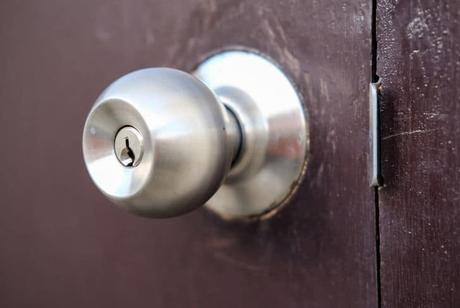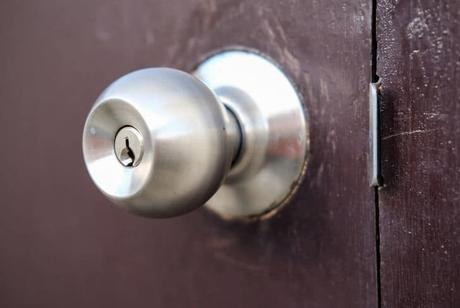Can You Recycle Door Knobs?
It may be impossible to say how many doorways are in America today, but what is certain is that a large proportion of these doorways have door knobs attached to them. While this is good and helps us achieve security of ourselves and our properties, we have to consider the effects of door knobs through other angles.
One of these angles is the implication of these door knobs on the environment. What, for instance, would be their end after use? Finding answers to this question is important if we must achieve an environmentally sustainable society.

In light of this, this post considers some valid questions and provides answers to them regarding door knobs and the environment. You don’t want to miss out on any of these. So, relax, let’s slide in and enjoy the exposition.
Are Door Knobs Recyclable?
The answer to this question will depend on the materials used to make the doorknobs. Door knobs made with metal, brass, and glass are most likely recyclable. For door knobs made with materials like wood or pottery clays, they are not recyclable.
The implication of having door knobs in different materials is that when next you want to recycle them, you can take proper note of what kind of door knobs are separated for recycling. You don’t have to worry about wood and pottery clay door knobs; they will break down easily even if they end up in the landfill.
So, the next time you come across old door knobs, you can always separate them for recycling based on their types. This will help the environment a lot.
Can You Recycle Metal Door Knobs?
It seems obvious from the name that metal door knobs are made from metal materials, and as we all know, metal materials are recyclable unless they have been specially treated. What we should find out is whether metal door knobs fall into the category of the metal materials that have been specially treated and can’t be recycled?
Metal door knobs are very much recyclable. They have not been specially treated to make them unfit for recycling. So, you can always take them to the recycling station near you.
Aside from recycling stations, you can also send your metal door knobs to the scrap centers. These scrap centers deal specifically with metal materials and would know the exact thing to do with them. So, even if you don’t find a recycling station near you, this shouldn’t be the end of everything.
You can also take the metal door knobs to the scrap metal shops. And the good thing is that, depending on the number of metal door knobs you have, you can make some money by exchanging them for cash.
Can Brass Door Knobs Be Recycled?
Of course, one of the most preferred door knobs is those made with brass materials. Like every other door knob, they don’t last forever and will need to be changed. When you change them, it would be a bad idea to throw them in the waste bin. One option to consider is if these brass door knobs can be recycled.
The good thing about brass door knobs is that they are recyclable. Many recyclers love having them because of their ease of recycling. When next you change your brass door knobs, you should remember to keep them aside for recycling.
Because of their peculiarity, it may not be the best of choices to put your old brass door knobs inside the recycling bin alongside other recyclable materials. The best thing to do is package the brass knobs in a carton, then send it to the recycling station for recycling.
What Material Are Door Knobs Made Of?
The history of door knobs tells us that they have been around since the 19th century. For something that has been around for this long, you can be certain that deciding to look into the kind of materials they are made of isn’t the wrong idea. For one, it will give us an insight into how to deal with these door knobs in a way that will not harm the environment.
When door knobs first came into existence, what they were made of were simply woods. These woods had latches and strings with them to give the door knobs the durability necessary. Later, door knobs were being manufactured out of glass.
Ceramics door knobs too came into the limelight when they began coming into America from England and France. Door knobs made with metal materials like bronze, iron, and brass have also come into existence. For some time, there were also door knobs made out of pottery clays.
Today, mostly all these kinds of door knobs made with different materials are still available. The only difference is that they are not in use in the same proportion. The kind of door knobs majorly in use today are the door knobs made with metal materials.
Regarding the environmental concerns of these door knobs, the most eco-friendly ones are those made of wood and pottery clays. The reason is that they come from natural sources and won’t take forever to break down and biodegrade.
For the others, sadly, they have one or two negative effects on the environment. For instance, the most common materials used for door knobs- metals- don’t biodegrade on time. Averagely before metal materials can biodegrade, they take up to a hundred years. This is too long a time for something to biodegrade without affecting the environment.
The problem is further amplified because when metal materials break down, they only turn to metal dust, which will remain in the soil, thereby reducing the soil’s nutrients and stunting the plant’s growth.
As much as possible, always try to go for the more eco-friendly ones like the door knobs made with wood and pottery clay.
Are Door Knobs Universal?
There are times that you may need to change your door knobs, so you must know whether door knobs are universal or not. Well, the reason we are here is to give you the answers that you will need. So, let’s get to business.
As much as we would like it to be so, door knobs are not universal. Given this situation, it means that you cannot switch your door knobs without measuring the sizes of the bore on the door and taking notice of the specifics of the old door knobs.
The only situation where it appears you can change your door knobs without bothering about these things is when the door knobs have been manufactured by the same company and are of the same type.
In the absence of this, you may have to call a professional to help you change your door knobs. Also, due to recent improvements in the production of door knobs, it is difficult to remove the locks yourself.
Generally, when you want to change your door knobs, there are some things to consider. This is necessary because door knobs are not universal. The things are
- Measuring the door knobs’ bore hole
- Measuring the door knob’s backset
- Measuring your door’s thickness
These three things would give you an insight into what kind of door knobs to buy and how you can fix them.
5 Creative Ways to Reuse Your Old Door Knobs
As we have always said in our other blog posts, there is no limit to how creative you can become. The only thing is for you to have the required time to be creative and know what to do to bring out your creativity.
Like always, we will handle what to do with old door knobs to bring out your creativity; yours is to find the required time to put this into practice. In the paragraphs below, you will find what you can do with old door knobs.
1. Make Mini Vases
We all can testify to how flowers in vases have the magic of beautifying our environment. This state of things has made many of us spend money on flower vases. But then, you can put an end to that now. With door knobs, you can make your main flower vase. The door knobs you can use are the round door knobs. Once you get the round door knob, you should wash and dry it, to get rid of any particles. After this, you can put your flowers in them. Another good thing about this is that the door knobs are small, so they would not take up many spaces in your homes or offices. You can also paint the exterior with bright colors to give the door knobs a fascinating appearance.
2. Make Hangers
With door knobs, you can make yourself a hanger to hang your bags or clothes. What you have to do is get some old door knobs together and get a flat plank. After this, nail or fix the old door knobs to the flat plank, then nail the flat plant to the wall. This way, you can hang your bags on their handles. You can even hang your hats and clothes.
3. Make Window Blind Tie Backs
You might have or know someone whose window blind tie backs have broken or worn out. This situation makes the window blinds look awkward as you have to tie them every time you want to let in some light.
But this does not have to be the case anymore. With your door knobs, you can make new tiebacks. All you have to do is remove the broken or worn-out tie bags and glue the door knobs to the exact position. This way, you can use it as your window tiebacks.
4. Use As Drawer Knobs
You may be familiar with this, as it is a common situation that your drawer knobs don’t last long. Well, with your door knobs, you can quickly fix the situation. When your drawer knobs remove, you can easily replace them with your door knobs. And if you have a drawer without a knob, you can fix a door knob to it to make things easier for you.
5. Make Tray Feet
With four equally sized door knobs, you can give your serving tray a facelift by creating feet for it. What you have to do is to glue the four door knobs under the serving tray. Ensure that the four door knobs are towards the edges of the tray to give it a balance.
Conclusion
As you have read above, door knobs are essential to ensure our security and that of our properties. However, they may cause harm to the environment if not properly disposed of. We have explained various ways to do this, and how to deal better with door knobs. The ball is now in your court, so do the right thing.
References:
https://www.homedit.com/repurpose-old-door-knobs/
https://www.wikihow.com/Buy-Door-Knobs
https://diyeverywhere.com/2017/07/11/12-genius-ways-to-repurpose-door-knobs-you-never-knew/


